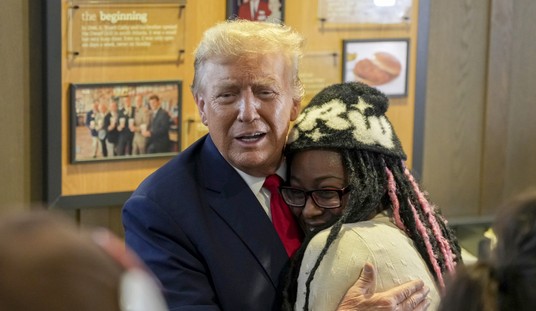The Left, as well as most Democrats, favor and regularly call for an increase in the minimum wage. They argue that inequality is growing, that families earning the minimum wage cannot support themselves at the current rate, and that the best way to address the issue is to build up pressure for a mandated wage increase.
They are correct that growing income inequality and the widening gap between the rich and the rest of the country have to be addressed. Reform conservatives have in fact addressed the issue for some time, as in this article by Matthew Continetti, and this one by Pascal-Emmanuel Gobry. Perhaps one of the most insightful articles by a conservative on the issue is this piece by Prof. Patrick Gerry of the University of South Dakota.
Conservatives by and large have made the argument that increasing the minimum wage will not solve the problem, but will only make it harder for lower income people to get beginning jobs, and will adversely affect students who have to work while in college or during the summer. Most have used this argument, made here by economist Stephen Bronars. On the other side, Ron Unz has waged a campaign in favor of raising it to $12 an hour.
This is already a large increase from the federal minimum wage of $7.25. I understand the need to raise the minimum wage, but wouldn’t it make more sense to do it over a number of years, taking inflation into account? To instantly raise it by a very large amount will produce a new set of problems that the Left does not want to address.
A few days ago, ABC 7 News in San Francisco reported that Alan Beatts, owner of the popular independent bookstore Borderlands Books, announced that he was shutting its doors. The reason he gave was the ballot initiative, passed in the previous mid-term elections, which mandated that the minimum wage be raised to $15 an hour by 2018. While the rest of the nation focused on the incredible Republican victory in the midterms, “progressive” activists bragged that in the cities and states, their campaigns and protests worked, as regular citizens voted on behalf of their agenda.
After running the numbers, Beatts determined that he could not afford the increase which would put him in the red. He had survived the birth of Amazon and San Francisco’s current minimum wage of $11.05 per hour, but $15 was the tipping point for him. (You can see him explain his decision in more detail on Morning Joe.)
Unfortunately, those who worked there will be joining the ranks of the unemployed.
In his case, the small bookstore has only five employees including Beatts, three of whom get the minimum wage. He pointed out that book stores will be especially hard hit, because they won’t be able to absorb the increase gradually by raising prices: the prices are already printed on the book. But it would also affect other small businesses, including auto body shops, gas stations, mom and pop stores, shoemakers, etc. In the future, if not sooner, San Francisco may find large numbers of people previously employed and paying taxes to the city unable to find employment, and now adding to the expenses of the city and state.
All this reminds me of the fate of the Eighth Street Bookshop, a very popular bookstore in New York’s Greenwich Village which closed decades ago. Ted and Eli Wilentz opened the store way back in 1947 and closed it 1979. At its height, it had a stock of 60,000 books, and was a literary salon as well as a site where authors regularly appeared. After a fire, it was rebuilt, and former employee and writer Bill Reed noted:
The Eighth Street Bookshop rapidly became a literary gathering-spot reflecting and in turn influencing the latest local, national and international vogues in everything from poetry to astrophysics. Over the next few decades Eighth Street would become as fine a book emporium as any in the U.S., and a worthy rival to Blackwell’s in London.
The owners were on the political left, and the store became a beacon of the 1960s counter-culture, and was known throughout the nation by readers. Reed continues:
Most Greenwich Village retailers had gone the way of high-tech security systems to snare shoplifters, Eighth Street did not require one to “Please check all bags, etc. at the front counter.” So lax was overall security that one employee who worked there was able to steal many thousands of dollars from the till before getting caught. A self-styled struggling artist, even though the Wilentzes paid wages nearly twice as high as any other bookstore in the city, he most likely felt his actions justified. But emblematic of the fluffy white cloud of paradox hanging over the place, when this not-so-petty thief was finally uncovered and sent packing he was given generous severance pay. Just what you might expect from a couple of only partially reconstructed lefties like Ted and Eli. The aforementioned pilferer notwithstanding, working at Eighth Street was considered a sinecure by most who toiled there. Another time, an employee, known for his hangovers, mistakenly ordered a mammoth number of non-refundable books: “Just give me one of everything,” he had told a salesman. Typically, he was allowed to stay on.
So the brothers paid twice as much as other bookstores in New York City, and even let an embezzler who worked there off, because he was a struggling artist. But this did not warm the hearts of the Left. In the ’70s, a fledging leftist group began an effort to unionize small independent businesses, including bookstores. Whom did they choose to begin their new campaign, and to post picket lines in front of?
The answer, of course, is the Eighth Street Bookshop. The socialist writer and activist Michael Harrington (whose own books were sold there and did quite well) led a picket line in front of the store, chastising it for hiring workers who were not union members. That the owners were small businessmen who were also leftists and who already paid higher wages than other bookstores did not matter.
As Reed writes:
Under a headline reading, “Great Moments in Labor History,” the October 1, 1979 issue of the Village Voice reported that the store’s personnel had shown up for work earlier that week to find, without prior notification, the locks on the door changed. The Voice implied that Eli Wilentz, rather than give in to unionizing his operation, as the majority of his employees were now pushing for, Eli Wilentz decided to close up his store for good (although Eli later denied that was the reason). A sign in the window read:
“To customers and friends — After thirty-two years of running the bookshop, I have decided to retire. I appreciate your friendship over the years. Long live Greenwich Village and its poets, writers and readers.”
When it comes down to it, small businesses (which are responsible for creating most new jobs) have to make a profit and can’t run on a deficit the way that countries can. It doesn’t matter how much their owners want to stay open or what their political beliefs are. In the end the business has to be profitable to make their investment worthwhile and all of their hard work worth it. That is the way economics works, no matter how many wish it wasn’t so.








Join the conversation as a VIP Member